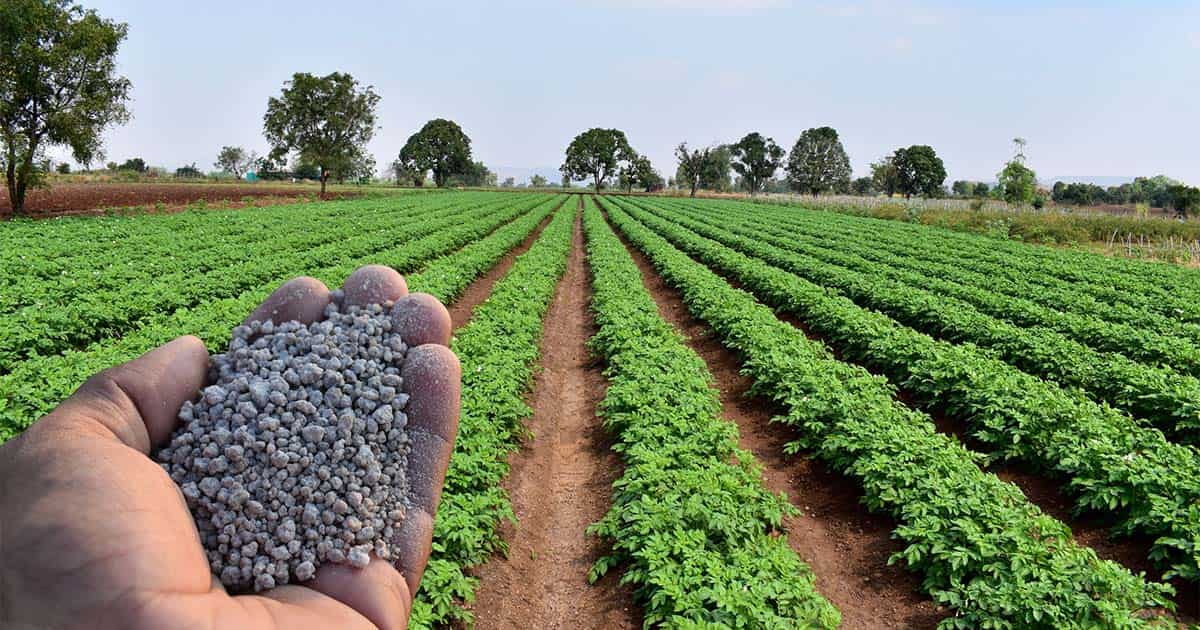How fertilizers are key ingredients in food production

Crops, just like humans, need nutrients to be healthy. Fertilizers give crops the nutrients they need as they grow.
Fertilizers allow farmers to produce more crops on existing farmland. Farmers use them to help keep the soil productive after each harvest, replacing the nutrients that crops remove.
They are considered essential to increase the world’s food supply for a growing population.
Here are the basics on fertilizers:
- Main types of fertilizers
Nitrogen: Nitrogen is considered the most important nutrient for growing plants to be healthy and nutritious to eat. It’s essential in the formation of protein, which makes up much of the tissues of most living things. A nitrogen deficiency causes green leaves to turn yellow.
Phosphorous: It’s needed to help plants grow and develop normally and is linked to a plant’s ability to use and store energy, including the process of photosynthesis.
Potassium: Potassium helps strengthen a plant’s resistance to disease and helps increase crop yields and overall quality. Potash is used primarily as a fertilizer because it is a strong source of soluble potassium.
While these same nutrients are naturally found in soil, it can take years for diminished soil to rebuild them. Commercial fertilizers typically combine nitrogen, phosphorus, potassium, and other elements, from nature, in different ratios and they are put into a form that plants can use.
Organic fertilizers: They include compost, agricultural waste, livestock manure and municipal sludge. Organic fertilizers can provide the secondary and micronutrients plants need, which can be absent in commercial fertilizers. Farmers can use them to complement commercial fertilizers.
- Crop yields: Fertilizers are quickly absorbed and used by crops, allowing them to grow bigger and faster to produce more food. Without their use, crop yields and agricultural productivity would be reduced.
Farmland has been lost over the last 40 years due to the expansion of cities and towns. As a result, fertilizers allow farmers to produce more crops on existing farmland.
By 2050, the world will need to increase food production by 70 percent to feed its population. It’s now estimated that one-third to one-half of the global food supply is directly linked to the use of commercial fertilizers.
Fertilizer helps keep soils productive globally to supply enough food for the world’s growing population, which is projected to be almost 10 billion by 2050, up from its current 7.9 billion.
- Canada’s role in fertilizer production: Canada is the third largest producer of the big three fertilizers -- nitrogen, phosphorous and potassium -- in the world. Canadian fertilizer is exported to more than 75 countries.
Canada is also the top producer globally of potash fertilizer and holds 45 per cent of the world’s reserves.
Our fertilizer industry is an important part of our economy, contributing $23 billion annually and over 76,000 jobs. It produces about 24 million tonnes annually.
Canada’s fertilizers are helping grow food to feed the world’s population.
- How does fertilizer contribute to climate change: Fertilizers produce greenhouse gases after farmers apply them to their fields. When they are overapplied they can become a pollutant. Crops only take up, on average, about half of the nitrogen they get from fertilizers. The rest of the applied fertilizer runs off into waterways or it gets broken down in the soil, releasing the greenhouse gas, nitrous oxide, into the atmosphere. Nitrous oxide is considered to warm the planet 300 times as much as carbon dioxide.
However, Canada’s fertilizer manufacturing industry says advances in agricultural techniques allow farmers to apply fertilizers with greater accuracy, minimizing or helping avoid damage to soil, water, and air. For example, farmers today are producing one-third more corn for each pound (0.45 kilograms) of nitrogen they apply, compared to 20 years ago.
- Other uses for fertilizers: Specific fertilizers for lawns, gardens and house plants are used to make them grow and stay healthy.



